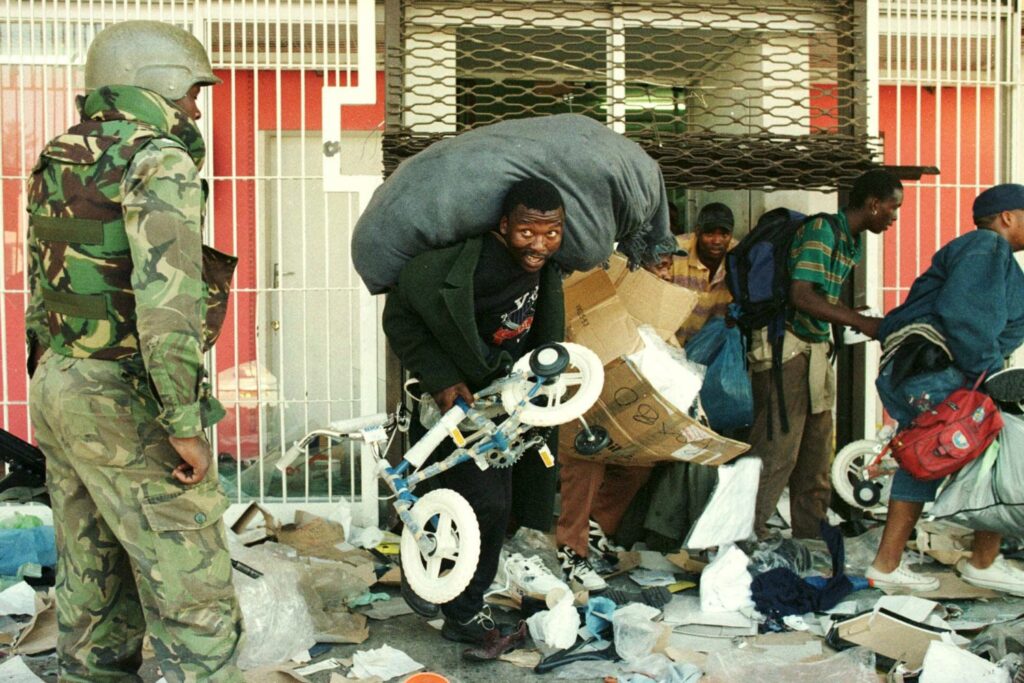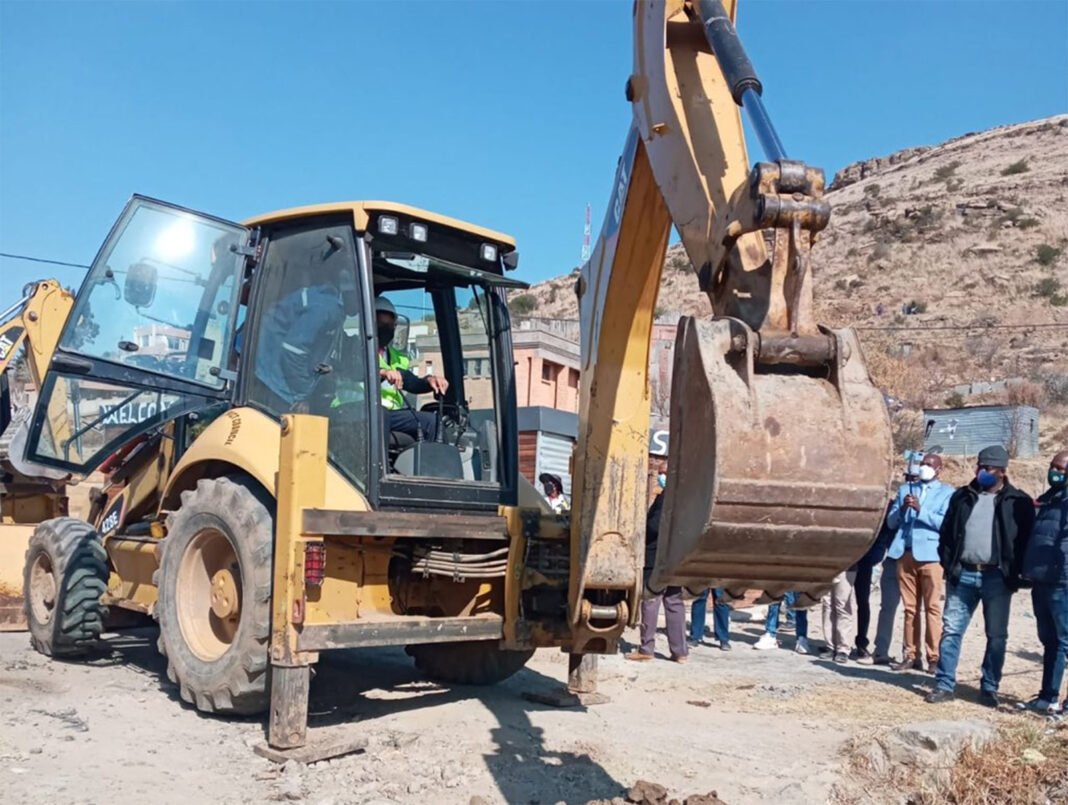South African army commanders have vowed to be more aggressive in the Lesotho capital, Maseru, where their troops are trying to restore order after a military uprising.
Speaking from Pretoria, the commanders said South African soldiers would now operate a shoot-to-kill policy to suppress continuing violent protests.
South African President Nelson Mandela on Wednesday publicly endorsed the military intervention in Lesotho, saying it had been essential to end “chaos and anarchy”.
The intervention began on Tuesday after weeks of unrest caused by allegations of fraud during general elections in May.
Mr Mandela, who was not in South Africa when the intervention was ordered, warmly praised Chief Mangosuthu Buthelezi, the acting president, for his handling of the situation.

“I am satisfied that they have handled it very well,” Mr Mandela said.
However, the operation met unexpectedly heavy-armed opposition and at least nine South African troops were killed. According to Mr Mandela, 58 members of the Lesotho armed forces also died.
The BBC’s correspondent in Maseru, Jeremy Vine, says reports allegedly leaked from senior South African soldiers suggest dismay at the lack of preparation and planning for this military operation.
Meanwhile, King Letsie of Lesotho is reported to have called for talks with the South African Government and opposition about the intervention.
Acting President, Mangosuthu Buthelezi, told the BBC that South African soldiers would stay until the situation was peacefully resolved.
He said: “We regard this as a very serious attempt to try and normalise the situation at the request of the legitimate government of Lesotho.”
Meanwhile, Britain is trying to organise a military convoy to evacuate British nationals from Lesotho to South Africa.
The intervention has left Maseru in chaos, and its citizens are blaming the foreign troops for the violence and gang looting.
The South African news agency reported that some 600 supporters of the beleaguered Lesotho ruling party had fled into South Africa to escape attacks by the opposition.
Lesotho’s opposition has warned that there is no short-term military solution to the crisis.
Recent troubles
Lesotho has experienced seven weeks of anti-government protests, some of them violent, after the disputed election. The opposition complained that May’s general election, which gave the ruling Congress for Democracy 79 out of 80 seats, was rigged.
Earlier in September, 15 senior officers fled Lesotho for South Africa. They had been arrested by junior ranks and forced to resign in a disagreement over military intervention to end six weeks of unrest in the capital.








